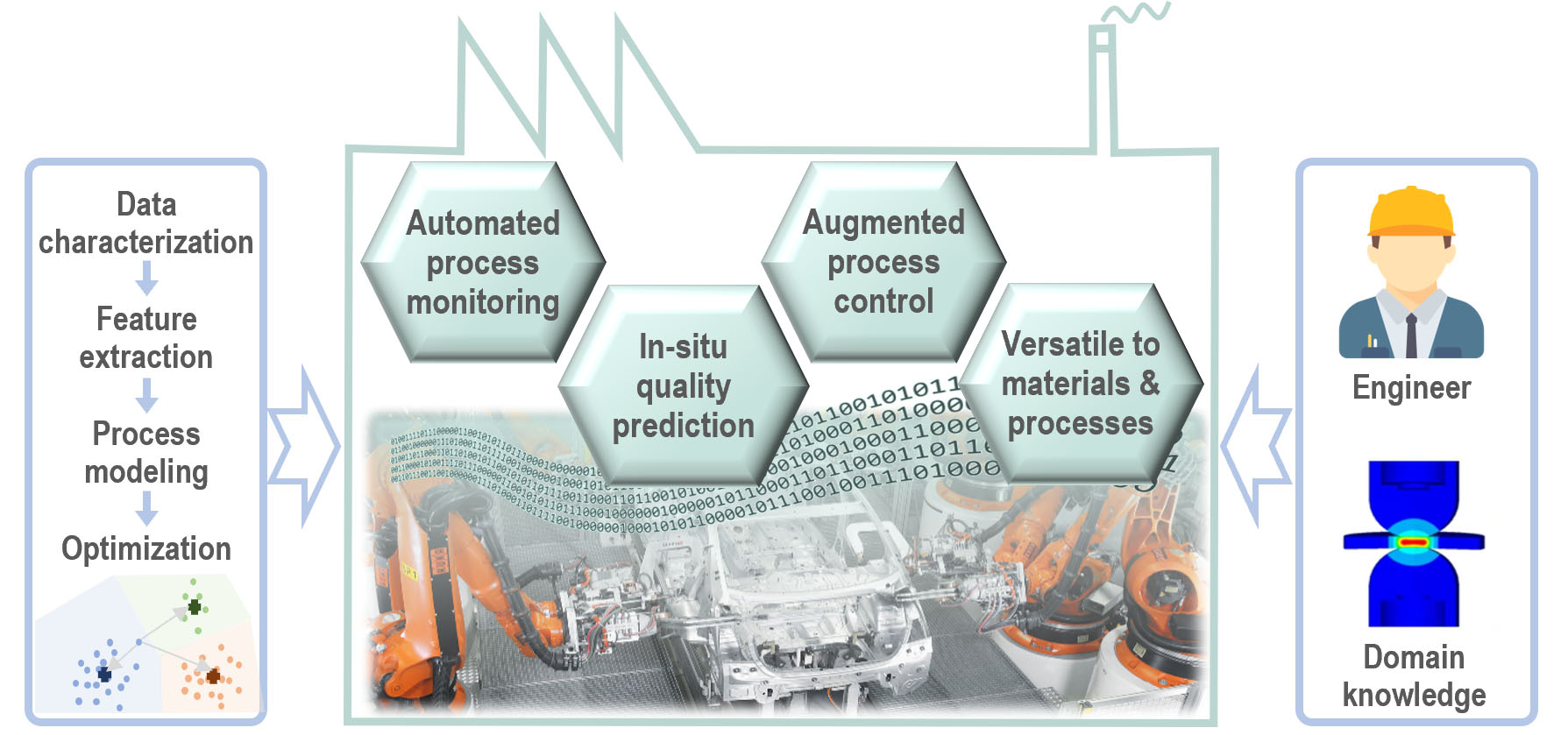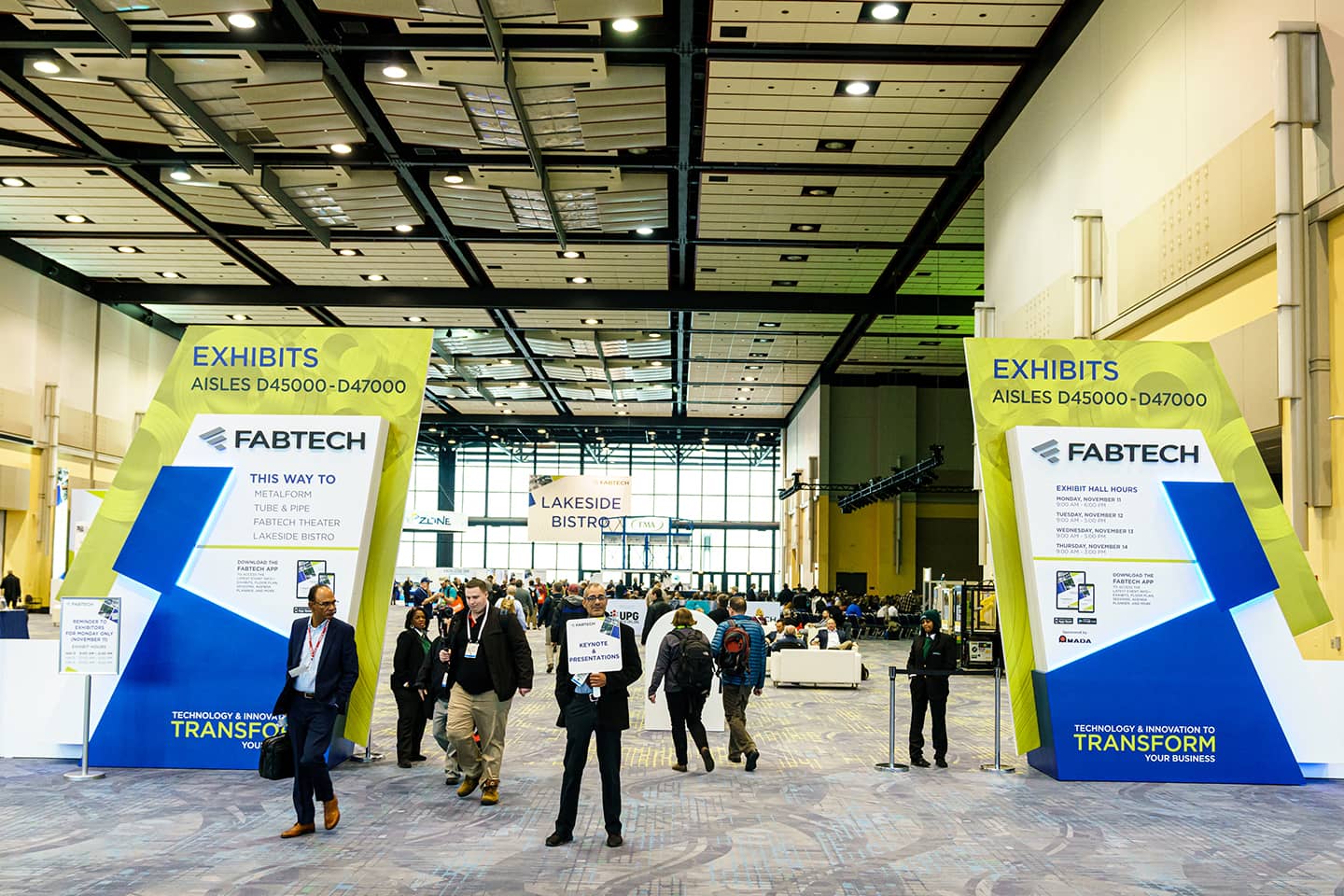Evolution of Welding in the Automotive Industry

From BIW to EV battery welding, engineering and AI/ML have become crucial in making welding intelligent
By Hassan Ghassemi-Armaki, global research and development, General Motors, Warren, Mich., and Peng Wang, Department of Mechanical and Aerospace Engineering, University of Kentucky, Lexington, Ky.
Reprinted with permission: The AWS Welding Journal
The automotive industry has witnessed remarkable advancements in welding technology, revolutionizing the manufacturing process of vehicles. Over the years, welding techniques have evolved to address unique challenges faced by traditional and electric vehicles (EVs) manufacturing. This article explores and highlights two critical elements that drive the evolution of these welding techniques: engineering and artificial intelligence (AI)/machine learning (ML). Welding engineers play a pivotal role in the automotive industry as they are responsible for the design, development, and weld assembly of vehicles that meet safety, performance, and efficiency standards. AI/ML, coupled with advanced process sensing technologies, significantly improves the welding process control and quality assurance. Additionally, this article delves into the future of intelligent welding in the automotive industry.
The Importance of Welding in the Automotive Industry
Welding forms the foundation of an automobile’s makeup, ensuring structural integrity and safety. The welding process in traditional car manufacturing requires precise techniques to join metal components effectively. However, the introduction of EVs has brought additional complexities due to the integration of battery systems. Welding processes in EV battery manufacturing demand specialized knowledge and techniques to ensure the integrity and reliability of battery weld joints. Welding engineers are responsible for integrating various components, systems, and technologies to create reliable and high-performing vehicles.
Challenges in Welding Traditional Cars and EVs
The welding processes in the automotive industry are highly dynamic and involve complex physical phenomena, making process monitoring and quality assurance challenging. Traditionally, the industry has heavily relied on manual quality inspection. Two essential elements to advance the welding state and automate quality control are advanced process sensing and sensing data analytics. Advanced process sensing enables better characterization of process dynamics and identification of process anomalies. For example, in resistance spot welding (RSW), electrode force and displacement sensing can complement traditional dynamic resistance measurement, revealing faults during nugget formation. In laser welding, laser welding monitoring technology captures thermal conditions, plasma emission, and reflected laser light simultaneously, enabling comprehensive monitoring of weld pool and keyhole formation.
The Role of Advanced Process Sensing and AI/ML in Automating Quality Control
Upon gathering process sensing data, necessary data analytics algorithms must be executed for decision-making. The complex process dynamics and strong nonlinear relationships between welding quality and sensing observations necessitate data-driven modeling and analysis, typically enabled by AI and ML. These algorithms can characterize sensing data, extract features, and correlate them to various classification or regression tasks, such as detecting welding defects or predicting the mechanical properties of welds. While AI and ML are valuable for their data representation and pattern recognition capabilities, their performance is subjective to the amount and variety of labeled training data. In the automotive industry, where welding materials and schedules frequently change, scalability and generalizability issues may arise. However, potential solutions such as transfer learning, federated learning, and continual learning have been developed to address these issues. These solutions aim to improve the generalizability and scalability of AI/ML models in welding applications.
The Envisioned Future of Intelligent Welding in the Automotive Industry
The future of intelligent welding in the automotive industry encompasses three key features. Firstly, automated and real-time decision-making on quality prediction and defect detection is crucial. This requires advanced process sensing, AI/ML techniques, and powerful computing resources for efficient data processing and decision-making. By leveraging advanced process sensing technologies and AI/ML algorithms, manufacturers can achieve real-time monitoring and analysis of welding processes, enabling proactive identification of defects and prediction of weld quality.
Secondly, intelligent welding should be versatile, adaptable, and scalable between welding processes, materials, and machines. It should be able to handle various welding processes, such as RSW and laser welding, and adapt to different welding materials, schedules, machines, and environmental conditions. This versatility ensures that the intelligent welding system can be seamlessly integrated into different production lines and manufacturing scenarios, providing flexibility and efficiency in the welding process.
Lastly, intelligent welding should complement human decision-making in optimizing the welding process and production line. While AI/ML systems can detect defects and predict weld quality, human engineers can leverage this information to conduct defect causal reasoning and suggest potential corrections to minimize defects and produce high-quality welds. This collaboration between humans and intelligent systems enhances the overall efficiency and effectiveness of the welding process, combining the expertise of engineers with the capabilities of AI/ML algorithms.
Conclusion
The evolution of welding in the automotive industry has been driven by the need for improved quality, efficiency, and safety in vehicle manufacturing. From traditional body-in-white (BIW) welding to the emerging EV battery welding, engineering and AI/ML have become crucial in making welding intelligent. Advanced process sensing and AI/ML techniques enable real-time monitoring, defect detection, and quality prediction, revolutionizing the way welding is performed in the automotive industry. As technology continues to advance, the future of intelligent welding holds great promise, with automated decision-making, versatility, and collaboration between humans and intelligent systems expected to enhance the welding process further. Looking ahead, the automotive industry can expect continued advancements in welding technology. As EVs gain popularity, the demand for specialized welding techniques for battery systems will increase. Welding engineers will need to stay at the forefront of these developments, continuously adapting and expanding their knowledge to meet the evolving needs of the industry.
Furthermore, the integration of advanced process sensing and AI/ML in welding processes will become more prevalent. Manufacturers will invest in powerful computing resources and develop sophisticated algorithms to enable real-time decision-making and quality control. This will improve the efficiency and effectiveness of the welding process and contribute to the overall safety and reliability of vehicles. In addition to the technical advancements, collaboration and knowledge-
sharing among industry stakeholders will play a crucial role in the evolution of welding in the automotive industry. Manufacturers, suppliers, and research institutions need to work together to develop standardized processes, share best practices, and drive innovation. By fostering partnerships and collaborations, the industry can collectively address challenges, accelerate advancements, and ensure the highest standards of quality and safety in welding.















